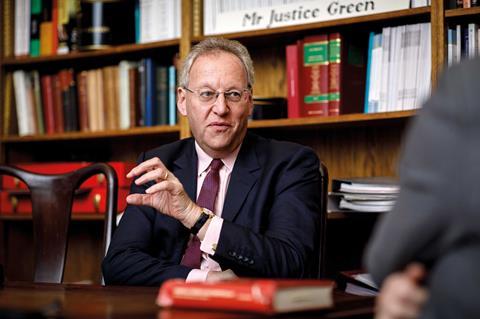The law commissioners are reaching a point where they cannot take on more work without ‘falling over’ and a fifth commissioner is needed, the outgoing chair of the Law Commission has told MPs.
Sir Nicholas Green, who steps down as chair next month, told the House of Commons justice select committee yesterday that the commission currently has 28 projects at various stages of completion with four commissioners doing the hard work.
‘That’s a very, very intensive workload. And the capacity of the commission to generate reports is contingent upon the human capacity of those four individuals. Everything leads up to a bottleneck because at the end of the day, the commissioners and I approve absolutely everything.
'We’re getting to the point we really can’t take on more work without the commissioners falling over. There is a case to be made for a fifth commissioner to cope with the work that we’ve got and that we would hope to be able to do in the future.’

The committee heard that when lord chancellor Gerald Gardiner introduced the Law Commissions Bill in 1965, he proposed six commissioners, 'one chair plus five', Green said. However, the legislation came out as ‘one chair plus four’.
Green called for a ‘one-digit change’ to the bill. ‘You change four to five. There’s always a risk in proposing an amendment to an act of parliament that you open Pandora’s box, but this seems to me something which might be considered in the future.’
Earlier in the day, the commission announced a review into 50-year-old laws on social care for disabled children commissioned by the Department for Education. The project will look at the law and policy on social care for disabled children in England, including section 17 of the Children Act 1989 and section 2 of the Chronically Sick and Disabled Persons Act 1970. The commission will look to simplify and strengthen the law to ensure the system is fair and works for children, parents and other care givers, and local authorities.
This article is now closed for comment.



























5 Readers' comments